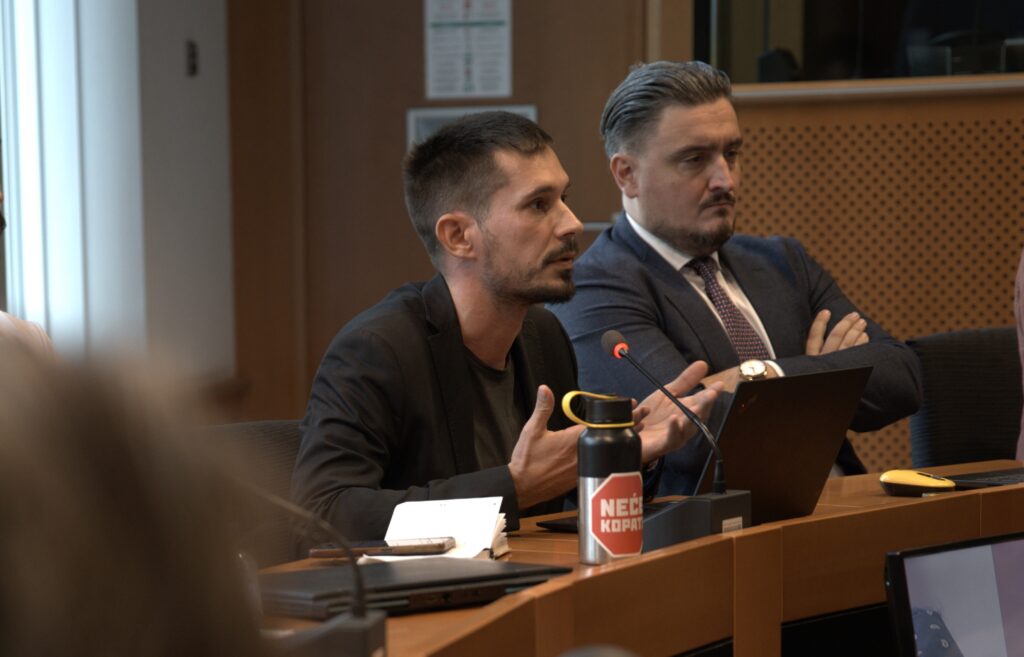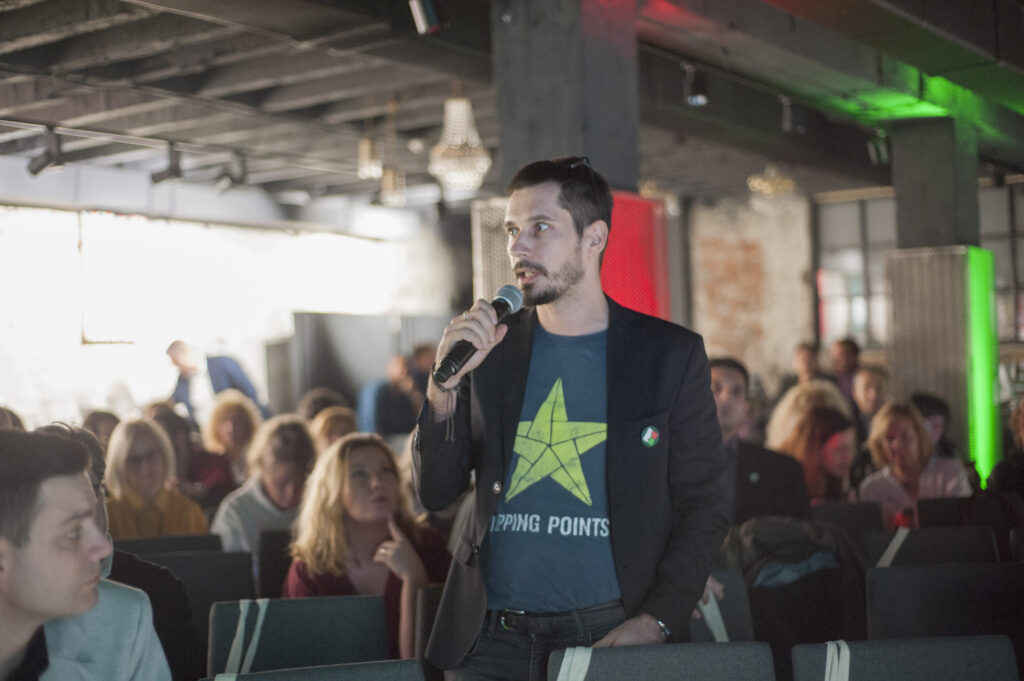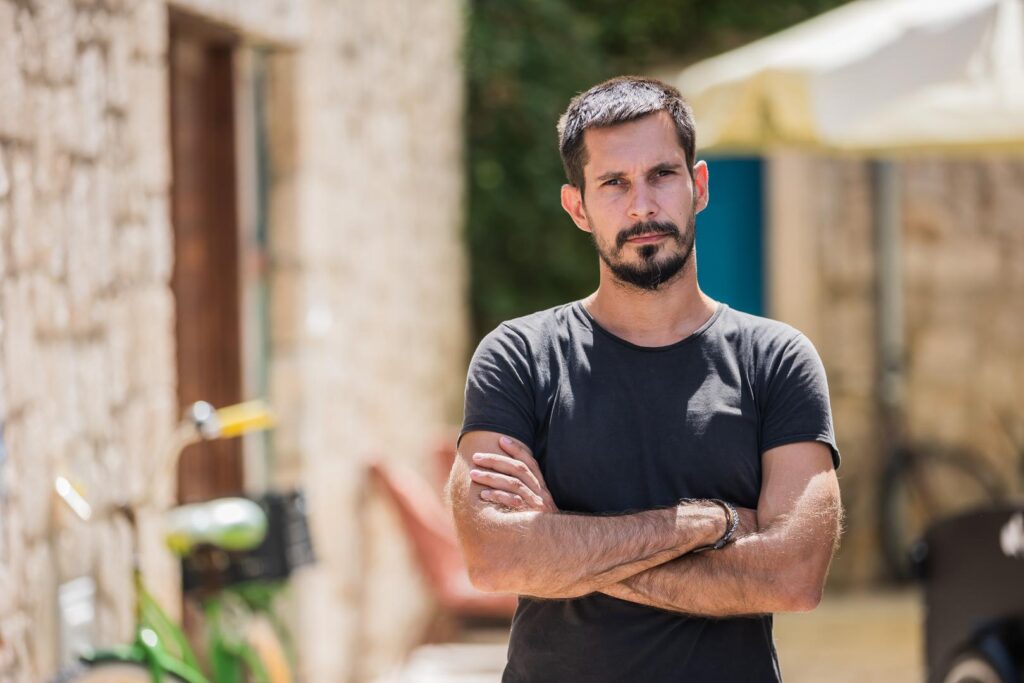The green transition is at a crossroads, raising critical questions about environmental and social impacts in Europe and beyond
 In this interview, Dr. Aleksandar Matković, a research associate at the Institute of Economic Sciences in Belgrade and external associate at the Transnational Institute in Amsterdam, delves into the complexities surrounding lithium mining in Serbia. He discusses the environmental and societal impacts of the “green transition,” questioning the motives behind foreign investments and the risks posed to local communities and civil society
In this interview, Dr. Aleksandar Matković, a research associate at the Institute of Economic Sciences in Belgrade and external associate at the Transnational Institute in Amsterdam, delves into the complexities surrounding lithium mining in Serbia. He discusses the environmental and societal impacts of the “green transition,” questioning the motives behind foreign investments and the risks posed to local communities and civil society
An event titled “Balkans at the Crossroads: Lithium Mining, Human Rights, and the Fight for the Environment” was held at the European Parliament. How are these topics interconnected?
The event’s name is not accidental. Lithium mining has previously been presented as a “win-win” situation for the EU and EU’s peripheral regions. However, recent events in August have shifted this perspective. The fight for environmental protection and human rights should not be sacrificed for lithium mining, which has placed the Balkans at a crossroads. In Parliament, I also emphasised that this is not solely a Serbian issue but a European one. Although we are not part of the EU, we are part of Europe, and a joint discussion on this is essential. The green transition seems to have reached a crossroads as well,” and the European Parliament has become aware of this.
How significant is this event in the European Parliament?
It is quite significant, primarily because of its content, which I hope will be written about in the future. This is the first time the European Greens have organised something like this, with the support of the European Environmental Bureau (the largest coalition of environmental organisations in Europe), and the first time that a Member of the European Parliament from the Greens, Sara Matthieu, stood behind this as an organiser. This event aimed to bring our side of the story to light, and I believe it succeeded beyond all expectations, providing scientific arguments to caution those making decisions. During the event, there was also a clash of opinions between our side – lawyers, economists, and activists – and Jonathan Vanherberghen, Rio Tinto’s Director of European Affairs, who attempted to “clear the corporation’s name” but failed.”
 Your article about this event mentioned a shift in the European Greens’ stance on lithium mining. Does that mean they previously supported mining but no longer do?
Your article about this event mentioned a shift in the European Greens’ stance on lithium mining. Does that mean they previously supported mining but no longer do?
I wouldn’t necessarily say that this event alone “tipped the scales” for the Greens. The European Greens are less monolithic than one might think: for example, France’s Les Écologistes oppose the project, unlike Germany’s Die Grünen, whose leadership collectively resigned in September due to poor regional election results in Germany. At the same time, I know some of our contacts within the European Greens who initiated that letter of support for the Serbian struggle just before this event at the European Parliament. In this sense, the roundwork had been laid, and this event rounded off the process of changing opinions. This means the whole event was pivotal for the process, even though it did not initiate it on its own. After all, we were heard in Parliament, everything was recorded, and will be considered in future discussions.
Lithium mining was once seen as a ‘win-win’ for Europe and Serbia, but recent developments show the true environmental and human rights costs that cannot be ignored
This is significant as it is a step towards influencing the opinion of the Committee on Critical Raw Materials, as it will be deciding on whether or not to fund this project with European taxpayer’s money in November this year. The faction supporting us will use this event as leverage with the committee to prevent the Committee’s decision to finance. Furthermore, as a result of the event, to my knowledge several open letters from various associations linked to the Parliament are being prepared to argue against supporting the “Jadar” project on the grounds of human rights violations. If the EU were to provide funds, it could lead to controversies over potential breaches of ESG principles, given the uncertainty about whether the project might involve arresting activists, or the extra-judicial use of force like the one we saw when the the police started entering people’s homes for no apparent reason, etc. So, I would say that the European Greens have changed their stance and moved from words to action. MEP Sara Matthieu even openly called this “neocolonialism” after our presentations, which shocked the audience.
The EU recently signed an agreement on critical raw materials with the Serbian authorities, highlighting the importance of supply chains. What lies behind this agreement, and what does it reveal to us?
The agreement itself is pretty vague and general. Of course, the core focus is on developing a battery supply chain. Interestingly, it references a letter of intent signed by our government in New York in September 2023, while the “Jadar” project was still supposedly inactive. Rio Tinto’s economic study was published in October, indicating preparations further preparations were well underway. The agreement also mentions the possibility of securing additional funding for such projects, which I assume is a prelude to obtaining European citizens’ funds, i.e., EU subsidies. Naturally, Maroš Šefčovič is involved in all this. During a visit to the European Parliament, we heard many parliamentarians are dissatisfied with the European Commission’s lack of transparency, in their various attempts at fast-tracking certain projects as much as possible.
A journalist who interviewed me is investigating connections between Šefčovič and Slovakia’s “InoBat,” which is set to come to Serbia. There are indications that it may have received some questionable support from the EC. I won’t go into more detail, but the fact that the current hype over the lithium mine is based on a letter of intent for a supposedly “nonexistent project,” conducted out of public view—even in Germany, where Scholz’s visit wasn’t even announced—and that this is non-transparent even to the European Parliament, should concern us. We can only imagine how future discussions might unfold, for example, on taxation, if, heaven forbid, issues like tax evasion arise.
The question of critical raw materials is who needs them: ordinary citizens, Europeans, or the industry?
This is a fundamental question regarding how the EU’s needs for various critical raw materials are calculated. I would quote Majdolin Sbai, a French member of the European Parliament, who participated with me in a preparatory panel before the European Parliament event titled “Lithium Mining in Serbia, Argentina, and Chile.” She oversees the implementation of the Critical Raw Materials Act in Parliament and knows a thing or two about it.
According to her, calculations for these needs never included some fundamental questions: do we want citizens to buy a new phone every year during the green transition? Is it acceptable for the wealthy to own five electric vehicles during this transition? All of this greatly impacts the calculations for lithium demand, which are primarily based on industry needs without adjusting consumer demand. Furthermore, unlike China, the German automotive industry focuses on premium and “high-end” vehicles (inaccessible to most consumers). Hence, these calculations assumed unchanged consumer habits of the upper-middle class in key EU regions. This has led to projections based on assumptions about the number of vehicles sold, the specific chemical composition of batteries, etc.
 Agreements like this, along with the idea of mining lithium and other critical raw materials, are justified by the need for a green transition, but environmental destruction is overlooked. How do you explain this? Is it simply ignorance, or is it a mask for corporate greed?
Agreements like this, along with the idea of mining lithium and other critical raw materials, are justified by the need for a green transition, but environmental destruction is overlooked. How do you explain this? Is it simply ignorance, or is it a mask for corporate greed?
I highly doubt that members of the mining industry are unaware of the environmental impact of mining. The term “green mines” is now en vogue, and I understand why—it’s how they justify the scramble for resources. However, this is part of a global process pointing to a broader picture: shifting production during the green transition away from China and the EU in the case of lithium. We see this clearly in Serbia, with the simultaneous arrival of steel manufacturers, automotive parts producers, and lithium mines. Sometimes, you’ll even see protest banners saying “Rio-Linglong,” as people recognise that something is coming from all directions—it’s the displacement of production.
If the possibility for dialogue is stifled in our countries due to lithium and the green transition, it will fundamentally alter the structure of our societies
Unfortunately, Serbia lacks adequate mechanisms to control foreign investments, making this shift particularly evident. The visible consequences then raise questions about the green transition back in the EU.
How do you see the broader economic and social picture through the lens of lithium mining? What does this tell us about our society today (whether in Serbia, the European Union, or China—it’s all the same)?
It seems to me that, as elsewhere, we are witnessing a shrinking space for civil society, which includes critical voices from scientists who aim to provide reasoned opposition to harmful practices. Unfortunately, this appears to be a global trend we may regret, so it’s crucial to discuss it now. This isn’t only about lithium; it’s about the conditions for social dialogue. If the possibility for dialogue is stifled in our countries due to lithium and the green transition, it will fundamentally alter the structure of our societies. This is what’s truly at stake here.
Why is the Serbian government so invested in opening the Rio Tinto mine in the Jadar Valley? What is their motivation?
Well, without concrete evidence, I can’t say for sure if anyone is personally invested. I think what’s remained out of public view is that we’ve missed the bigger picture by focusing on the details. The Serbian Progressive Party (SNS) has attracted significant foreign investment in the automotive industry, primarily from Chinese manufacturers. It seems that foreign automotive industries, now including electric vehicles, have been part of their strategy for over a decade, and there are connections there that we still don’t fully understand.
Suppose the “Jadar” project goes through. In that case, it will allow SNS to extend its hold on power rather than changing the economic model of attracting foreign investors with a blank check and neglecting domestic industry. Their plan will likely make them appear as indispensable to the EU, on which they count for EU money, so they’re closely aligned with this project despite all the controversies, and that is not going to change. In this sense, the ruling SNS party has crossed the Rubicon; it’s now clear where their interests lie, and they lie outside of Serbia. This is why the project sparked such resistance, especially when they began changing laws to favour such a foreign corporation at the expanse of an entire nation, making their own self-interests obvious for all to see.